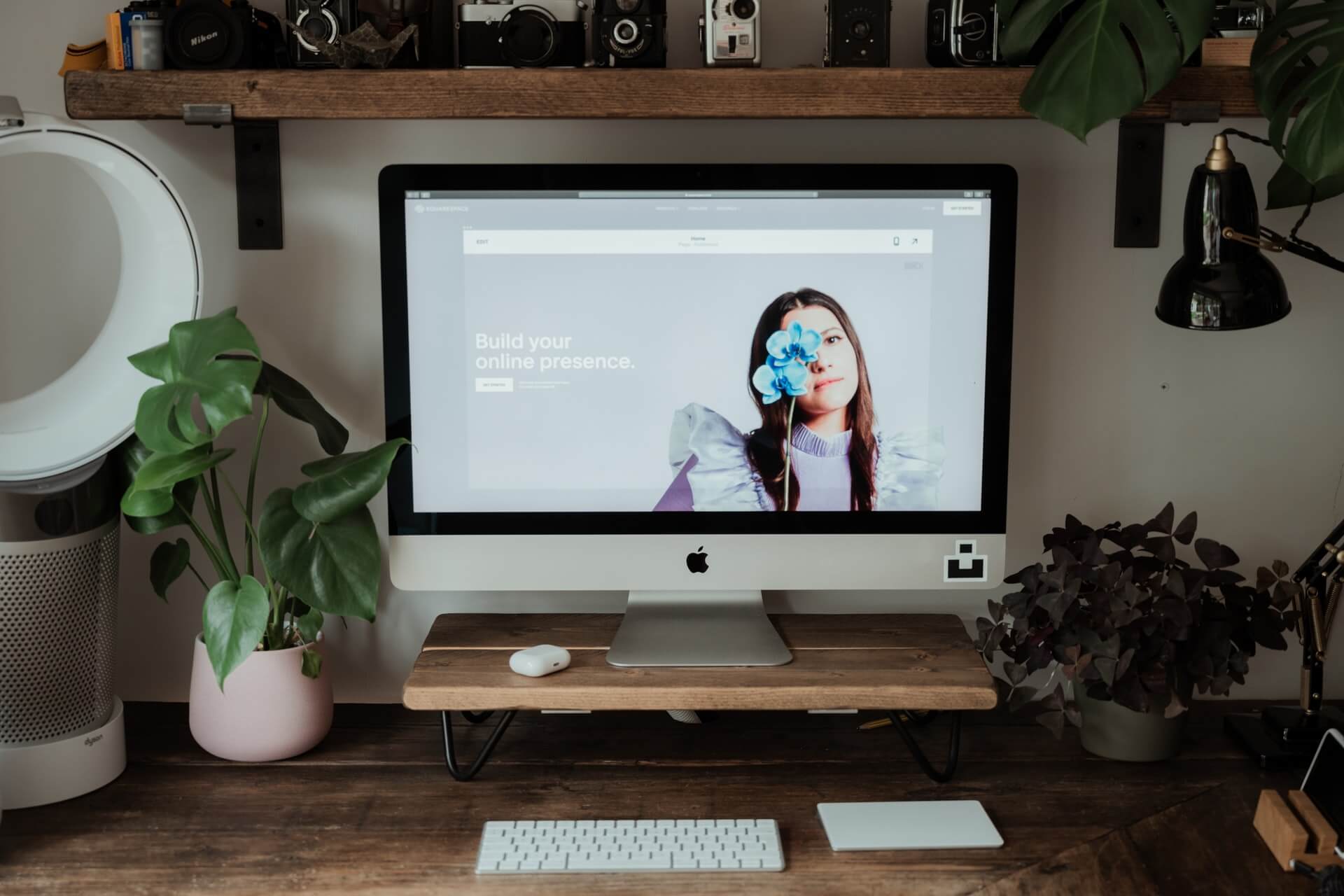The internet has only been around since the 1990s. In the past 30 years, it has grown and changed rapidly, and it continues to change. As the internet changes, website design goes through major evolutions too.
Just a decade ago, you needed code to create a website. But these days there are dozens of platforms to use to build your own website — and many of them offer a near-perfect solution for individuals, small business owners, students, non-profits, etc. There are beautiful templates, hundreds of blog posts about how to choose colors and fonts, and so many rabbit holes of knowledge you can dive into as you go.
These website builder platforms have also spent tons of money on advertising – almost everyone knows about Squarespace and Shopify – and they’re built to be intuitive and easy to figure out for anyone with a decent level of tech know-how.
Many web designers give a hard “no” to DIY websites, but I see these website builder platforms as great tools that have made digital marketing more accessible for more people. But even if you can, should you build your own website?
If you can’t find the budget for a professional website designer, YES, build your own website.
Unless you’re using a service like Upwork or Fiverr or working with a brand new designer, you’ll likely pay $2,000 to $5,000 (or as high as $10,000) to have a website built. This is totally worth it for the right designer, the right project, the right guidance, the peace of mind, etc. But if you just don’t have the budget, you may still need a website.
A DIY website is a great way to get something up while you save money for a professional website designer to do a full redesign later on. All you need to get started is some photos, some thoughtful copywriting, a good template or theme, an easy way for people to contact you/buy from you, and a clear plan for what you want people to do once they land on your website.
I’ll be sharing a lot more on this process in my DIY website courses launching in January – subscribe to my email list to hear more about those.
If you’re just getting started and expect your business to evolve, consider building your own website.
I’ve worked with several small business owners who are just starting out. They’ve often left full-time jobs to ramp up their side hustle, but it’s not always as straightforward as they plan. Things change a lot when building your business. I re-worked my website three times in my first year of business, and the services I offer now aren’t what I started out with.
Hiring a website designer is a major investment — it might be one of your biggest expenses starting out. It can be frustrating to have a website professionally built for you around a service or product that might not be your focus in six months or a year.
If you’re really not sure what your business will look like in the year to come, I recommend saving your money, building a super simple website on a platform like Squarespace, and adjusting it as you go. Once you’ve settled in, hire a professional. Many website designers also offer consulting to help guide you through the process of building your website.
If you do want to work with a website designer, make sure they know you want the website to be as flexible as possible, and ask if they can create page templates for you and spend extra time with you at the end teaching you how to use/reorganize the site on your own.
If you found a template or theme you love, if you enjoy learning, and if you can dedicate time to the project, YES, build your own website.
I find website design endlessly fun — I love choosing a nice template, adding in fonts and colors, and writing copy that fits perfectly in the space I need it to. But many people don’t feel that way. Even the most basic, user-friendly website builder platforms have a learning curve, and if you’re not excited about it, it’s going to be painful.
To have a good time building your own website, you’ll need a good sense of what you want the website to look like and what fonts and colors look good together, and you’ll need to be able to commit significant time to building it out.
I tell people to plan for at least 5-10 hours to learn the platform (you might need to watch some videos, play around, etc.) and another 10-15 hours to put the site together. You might need more time if you’re writing your own website copy, taking your own photos, etc.
You’ll also need to be really clear on what you want your website to do — what action are you asking people to take once they land on your website? A good website designer can help you figure this out if you’re not sure.
A good website is about so much more than just design, so you’ll need time to figure out the less-fun parts of it too, like setting up a privacy policy, making sure your site is secure, and structuring it well for search engine optimization (SEO). If all of this sounds fun and doable, dive on in!
If technology frustrates or confuses you, or you’re too busy to learn something new, DON’T build your own website.
I don’t have a long explanation for this one… if you don’t think you’ll love it, and you can afford to, outsource your website build to a professional website designer.
If you want everything set up well from the get-go, work with a professional for some or all of your website build.
Building a new website takes a lot of time. If you have to switch platforms down the line, you might have to repeat a lot of your work. If showing up in Google searches is important to you, building a reputation takes time, and many things can ding your site if not set up correctly.
There’s also website usability to consider — do you have strong calls to action on every page? Does your logo link to your home page? Do you have proper color contrast on all text/backgrounds? Do your images have alt text? Do you have the necessary info in your footer?
Working with a good website designer is efficient. Good designers keep up with trends, best practices, the forever-evolving Google algorithm, website accessibility, and more. They also know what works and what doesn’t (for your website visitor and for you!) since they’ve built many websites. A great website designer also knows how to take what’s in your head and bring it to life on a website. A website designer with a strong marketing background can share ideas on how to make your website work hard to get you leads so you don’t have to do as much manually.
Consulting with a website designer can get you moving in the right direction, as can my courses coming in January. You’ll need to be involved in the process even if you outsource your website design (providing information about your business, photos, text, design feedback, etc.), but some designers offer cheaper service options where you’re doing more of the work.
Working with a Website Designer
Finding a good website designer can be intimidating. I highly recommend asking your community for recommendations. If you don’t have personal recommendations, you can Google website designers and find one whose style seems like it will match yours.
Most website designers will offer a short free call, and many will provide estimates, so you can interview a few different designers. Website designers tend to have different specialties, so feel free to ask questions and seek out one who focuses on the things you’re least interested in doing yourself.



